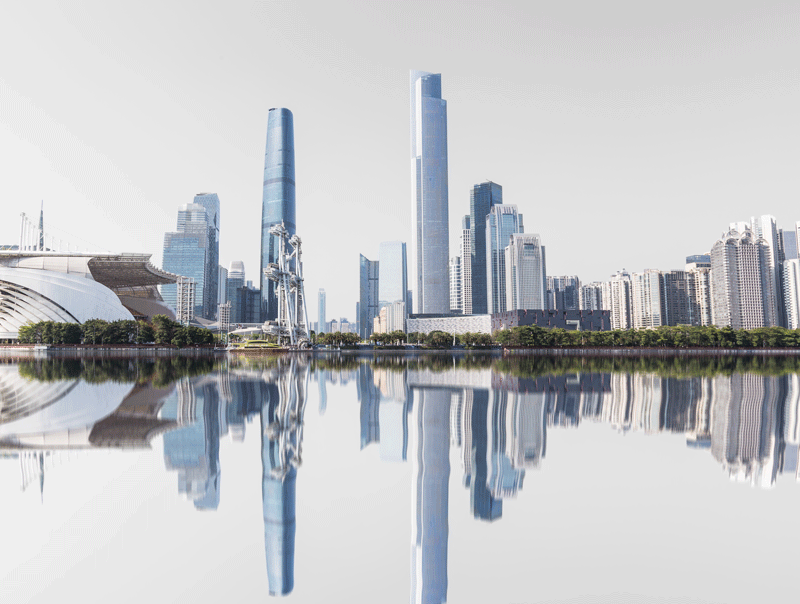 China’s Greater Bay Area and what it means for European businesses
China’s Greater Bay Area and what it means for European businesses
In a mere decade, the Pearl River Delta (PRD) has transformed itself from the workbench of the world to a global innovator. Like the reform and opening-up period of the 1970s, the PRD has once again appeared on the Chinese Government’s radar. In this article Marco Förster, a consultant at Helis & Associates, answers some questions regarding the impact of future PRD developments on European businesses in China.
In a plan to create a megalopolis, where cities in the PRD will cooperate with both Hong Kong and Macau, the Greater Bay Area (GBA), certain questions remain: How exactly does the GBA strategy compare to China’s ‘go west’ strategy or the Belt and Road Initiative? What does the GBA offer that the Bohai Economic Rim and Yangtze River Delta do not? Even in its early days the PRD was a trading hub. Compared to Beijing and Shanghai however, this area played a lesser role in terms of national importance in the first few decades since the founding of the People’s Republic of China. It was economically weak and dominated by agriculture. However, today China’s wealthiest man and woman currently live in Guangdong (Shenzhen and Foshan respectively).[1] Today, the PRD itis considered a postcard-perfect region, with numerous stories detailing how poorer rural areas becoming more urban and how people living in the area achieved billionaire status overnight.
The PRD experienced an upswing after Deng Xiaoping’s decision to make Guangdong an economically stronger region. This entailed an experiment, the establishment of a market-led economic system inside the larger framework of communist country. Hong Kong and Macao have classically acted as areas that foreign investors could enter the PRD. Now, these same areas are stepping stones for Chinese enterprises to reach out to the rest of the world. Over the last 20 years, industrial sites, export processing zones and technology parks have multiplied, accommodating both domestic and foreign enterprises. What is unique about the PRD is that the cities inside this area are highly diverse, each one a home-grown expert in the industry they excel at. Hong Kong, Macau, Guangzhou, Shenzhen, Foshan and Dongguan are all powerhouses, whether it be in trading, production, finance or innovation. For example, more than half the world’s microwaves are produced in Foshan and nearly 90 per cent of the world’s drones are assembled in Shenzhen.
Whereas Shanghai has traditionally received a great deal of attention, the PRD has often been overlooked in the West, despite its astonishing rate of industrialisation, development and innovation. Showcasing its relative lack of attention, less than 10 per cent of all German businesses in China have operations in Southern China. This is in contrast to a reality where the PRD is generating nearly half the mainland’s high-quality international patent filings.
Guangdong generates approximately 10 per cent of China’s gross domestic product, similar to the size of Spain’s entire economy. Whereas some parts of Northeastern China are dominated by state-owned enterprises, this region’s economy is made up predominantly of privately-held firms. This has led the West to look to the reason as an example to be followed, with the Economist stating in 2017 that “China can learn from the Pearl River Delta”. [2]
The PRD’s excellent infrastructure is another advantage. For example, Hong Kong, Zhuhai and Macao will be linked by the world’s longest sea bridge. Despite heated discussions on border controls, starting this year a new high-speed railway line will connect Guangzhou’s South Railway Station to Tsim Tsa Shui in Hong Kong. These connections may ease travel across the GBA, but can they also improve cross-border harmony?
Why did the GBA only recently emerge in government reports? The idea of connecting Hong Kong, Macau and mainland China was envisaged years ago but not formally proposed until 2011. In March 2017, Chinese Premier Li Keqiang announced a plan titled the Development of a City Cluster in the Guangdong-Hong Kong-Macau Greater Bay Area. Soon after that, it made its official debut in the government’s work report delivered at the National People’s Congress in Beijing.
How successful will cooperation be between Guangdong, Hong Kong and Macau? Will there be too much talk and too little action? Wang Rong, provincial chairman of the Chinese People’s Political Consultative Conference [3] in Guangdong, says working with Hong Kong and Macau means dealing with “one country, two systems and three customs zones”. One of the imminent issues that will have to be resolved is whether Hong Kong will contribute a portion of their revenue generated in the GBA to the central authorities. Observers have suggested that a high-level standing body be established to coordinate the development efforts of the GBA.
However, the combined GBA would then become the largest city in the world with an even higher population than the metropolitan area of Tokyo. The project will undoubtedly become Asia’s, if not the world’s, largest technology region, challenging Silicon Valley as a world-class cluster of technology and business. The Chinese Government hopes that cities in mainland China will cooperate with Hong Kong and Macau and capitalise on their competitive advantage in order to rapidly innovate and develop.
The economic potential of the GBA already equals the size of a G20 member. Would a successful global enterprise refrain from participating in an economy that has the same market capacity as Australia? While government strategies are being written and discussed, it is more than ever for European businesses to take another good look at the GBA.
Helis & Associates is a politico-economic communication agency, facilitating effective dialogue between Chinese & European decision makers both in politics and business. Our customers include trade associations, regional governments and corporations looking to foster business development in both China and Europe.
[1] Ma Huateng, Tencent and Yang Huiyan, Country Garden Holdings
[2] The Economist Special Report: ‘What the country can learn from the Pearl river delta’, 8th April 2017
[3] Chinese People’s Political Consultative Conference


Recent Comments